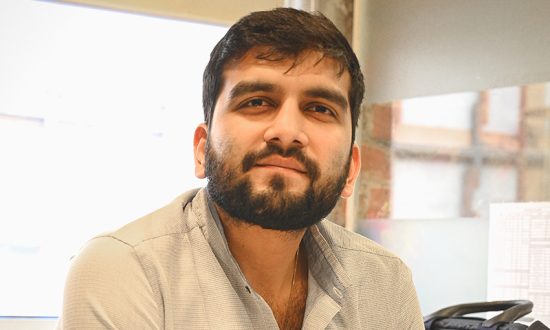Rishabh Jalan is the CEO & Co-Founder of Last Journey, India’s largest tech-enabled deathcare & funeral service provider. He launched Last Journey with the sole purpose of revolutionizing the Indian deathcare infrastructure and propagating death-literacy. As the CEO he is steering the company’s growth across various parameters and supervises the sales and marketing team as well.
In November last year, Prime Minister Narendra Modi committed at the COP-26 Summit at Glasgow that India would achieve carbon neutrality by 2070. Following this, all the sectors and industries of the Indian economy started to focus on sustainable ways of running their businesses which caused the emergence of innovative solutions. The Deathcare Industry is steering its course toward alternative funeral practices low on net-carbon output. A positive trend has caught up in this industry; pioneers of organized deathcare services in India have started taking impactful measures to contribute to India’s vision of becoming carbon neutral.
Key sustainable funeral practices that have become common in recent times are:
- Electric Furnace Cremation:
Electric cremation, also known as electric incineration, uses a high-powered furnace where the body is placed. Once the furnace reaches a specific temperature, the body is rolled into the heated chamber. In electric cremation, wood is not burned, and there are no gas emissions. It is undoubtedly an unconventional way of cremation but helps save resources like wood, kerosene, etc. It is also the most economical option for the funeral. According to experts, it produces around 90 percent less pollution than the funeral pyre.
- Cow-Dung & Wood Dust Pyres:
Logs made with cow dung mixed with wood dust and then dried to produce ready-to-use inflammable logs for performing the last rites. Being light in weight and equally effective in generating heat, these logs emit less smoke and retain heat for a longer time, which burns bodies in less time. The higher caloric value released when burning dung wood requires less use of ‘Ghee’ (clarified butter) in the pyre. The most significant benefit of using cow dung instead of firewood is the conversion of harmful gasses like methane into burning fuel.
- Eco-friendly Coffins:
Coffins have been used since ancient times to carry and protect bodies for funerals in different cultures worldwide. However, these coffins are primarily made of wood, and the world over. However, the production of commercial coffins leads to cutting down of trees rapidly in huge volumes. Recently, many private players have developed biodegradable coffins made of recycled wood and cardboard. The sides and lid of these coffins are usually made using recycled wood. The base is made using recycled plywood. They are lined with either calico or hessian, and a cardboard headrest is supplied. The handles are made from solid manilla rope and are load-bearing.
- Marine Reefs From Ashes:
It is more of a post-funeral resort but is still an innovative and impactful way to recycle ashes. A combination of cremation urn, ash scattering, and burial at sea into one meaningful, a permanent environmental tribute to life. These reefs are designed to be environmentally-safe cast concrete placed on the ocean floor as a permanent memorial of a well-lived life.


